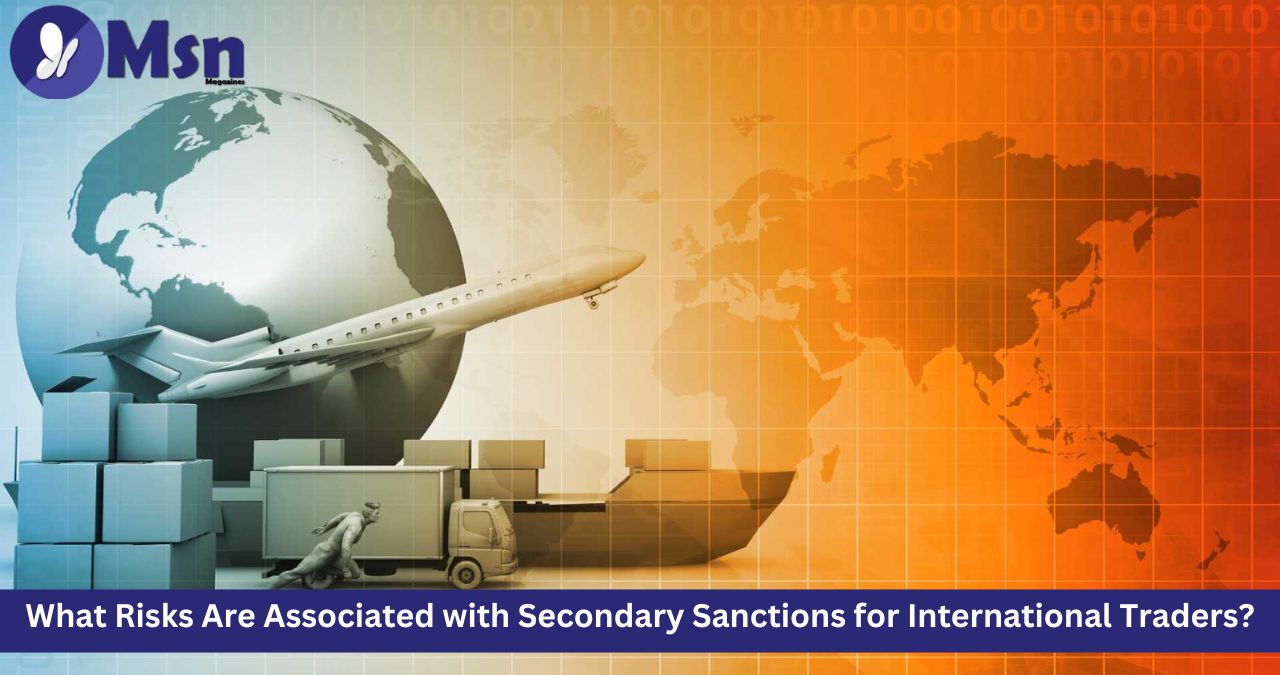Do you know how secondary sanctions can be devastating to parties that deal with international traders?
From secondary sanctions, whenever a country such as the U.S. makes such sanctions, it is traders in the region or doing business with the targeted nations or companies that are affected. This may result in financial repercussions besides other ramifications and repercussions that will ensue.
To quote Warren Buffett, “The stock market is full of people who know the price of everything and the value of nothing.”
Compliance is essential for international traders to assess the actual worth so that they can save their business and reputation and avoid secondary sanctions.
In this article, we will discuss the danger of secondary sanctions and the impact of these measures on world trade.
Understand Secondary Sanction Risks
Secondary sanctions are actions that the state takes against entities that are associated with countries or companies that primary sanctions affect.
For example, OFAC’s secondary sanctions list may be concerned with companies and individuals that OFAC has blacklisted. They can greatly affect international trade.
Trade dealers interested in using E-Commerce for their trading activity have some secondary sanctions risk. this could mean loss of market access or license or face legal charges.
Leaving without a clear understanding of secondary sanctions means their work could lead to serious issues in global business.
Bonus: Contact us to learn more about the latest compliance regulations and how you can guard your business against secondary sanctions risk.
Trade Impact on Compliance
Trade needs to respect global compliance laws. If not, it is subject to prohibition. For example, EU secondary sanctions target companies that deal with sanctioned countries and groups.
For the traders who may violate these regulations, they compromise their reputation or customers.
The second in the sanctions list often changes, so the trader does not have time to study the new rules and avoid violations.
Financial Rewards and Penalties Exposure
Businesses are liable to be penalized with massive fines for conducting business with entities that have been blacklisted. These penalties can be substantially above average, including for the traders who operate on an international level.
There are operational restrictions that refer to this type of risk that may deny an organization the right to operate in banking systems or markets. These sanctions have raised much complexity for traders because they have to keep abreast with the new sanctions to protect their businesses and their cash.
Secondary sanctions collected by the United States in 2023 amounted to $1.5 billion for violation of measures.
Legal Implication of Trader
Threatening for any trader is the severe legal penalties that can be imposed for violations of secondary sanctions. For example, OFAC secondary sanctions will lead to punishment in the form of fines or restrictions on business with the respective countries.
It also names some people and firms that traders must avoid due to secondary sanctions. Any attempt to violate these provisions could attract legal measures, which will be disadvantageous to the trader in the foreign market.
The term, secondary sanctions meaning is not that easy to define and therefore it is essential to know this, as well as how to avoid legal issues.
Risk of Market Exclusion
One of the biggest issues with secondary sanctions is the possibility of being excluded from international markets.
The impact was that if a trader is connected to a sanctioned country or an entity, the trader will not be permitted to transact with other countries. This may lead to market losses and even pull a company’s reputation down the drain.
Each secondary sanction threat affects not only individual contingencies but also company prospects. This is one of the realities that traders have to know to avoid situations when such exclusion takes place.
Different countries and companies’ sanctions are expected to affect the international FDI by $500 billion in 2024.
Monitor Business Relations Across borders
Secondary sanctions pose potential issues in the conduct of cross-border business relationships and entail penalties whenever other firms transact with them in secondary sanctions.
For example, the OFAC is a second-tier sanctions structure that concern interacts with barred organizations while conducting business with American firms. EU secondary sanctions and measures in the United States can lead to disruptions.
By 2024, the U.S Department of the Treasury has noted that about 45% of the globe’s organizations admitted that they have experienced an impact of sanctions. This goes a long way in protecting their business against new risks that are thought to be unfavorable to their business.
Effect on International Banking Systems
Secondary sanctions may impact the international banking systems. These global banks which do business for and with sanctioned parties may be liable.
OFAC secondary sanctions and EU secondary sanctions can both be aimed at financial institutions involved in these operations. This is a factor that has an impact on the operations of the traders. It should be appreciated as to how it impacts the banks through dealing with institutions that have good levels of compliance.
In 2023, over 30%of global banks were responding with changes to their operations consequent to secondary sanctioning.
Contact us to lower the risks associated with secondary sanctions and protect your firms from heavy penalties.



